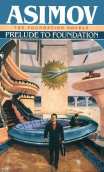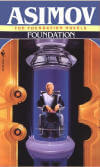 Not since I first read “On Basilisk Station” have I been quite so captured by a Military SciFi novel. Williamson’s first Science Fiction book is in many ways controversial in it’s views (for the record, the author does claim they are not really “his” views in his comments on Amazon.com) and will no doubt disturb some with its sexual content. Some part will probably shock you at one point or another, but it remains a great adventure story.
Not since I first read “On Basilisk Station” have I been quite so captured by a Military SciFi novel. Williamson’s first Science Fiction book is in many ways controversial in it’s views (for the record, the author does claim they are not really “his” views in his comments on Amazon.com) and will no doubt disturb some with its sexual content. Some part will probably shock you at one point or another, but it remains a great adventure story.
Kendra Pacelli is in the UN Military. Earth and a few colonies are ruled by a deeply socialistic UN (evolved into a nation) in which incompetence and mediocrity are the norm. Crime is so common that women have learned accept rape and muggings as just another part of life. Accused of a crime she did not commit, she is forced to seek asylum at the Freehold of Grainne. Unprepared and dropped in at the deep end, Kendra has to adapt fast to her new home. The Freehold is an example of almost pure capitalism/libertarianism (and thus basically the antichrist in the eyes of the UN). The government consists of a small police force, the military, the courts and nothing else. The tiny taxation is optional but does carry some benefits. “Rulers” (and they are not really) have to give up personal wealth in order to ensure they do not have ulterior motives. Without big government there is no pork barreling or corruption. Residents tend to carry weapons. Crime is very low and standard of living is very high. Kendra is very confused by such things as the fact that no one will molest women who wear racy clothing (or even walk around in the buff). Of course, these women will typically carry guns or knives, an illegal thing on Earth.
As a thought exercise, the society is very interesting. I don’t know if it would work, but many aspects are appealing. It is my experience that big government typically fosters incompetence, inefficiency, meddling where it is not needed, high taxation levels and mediocre services. I don’t know if I would go quite so far as the Freehold, but as I said, it definitely has appeal. Before you start flaming my inbox, however, I would point out that the system does have many rather obvious flaws which I will not bother to enumerate here.
While the novel is part social commentary, it should not be seen as any sort of manifesto. It is a bit slow (but quite enjoyable) in the first half, and then becomes action-packed (and even more enjoyable) in the second half. Williamson shows that he can really describe military training and combat. Kendra joins the Freehold military and the story follows her through training, a grueling guerilla campaign, a big climactic battle and finally the hell of urban combat. All this without any dressing up or glorification of combat itself. The “good guys” torture and kill out of necessity, often rage, sometimes even pleasure. The aftermath of battle and war, so often glossed over in this kind of story, is explored in gory detail. While we may seek to (and indeed should) glorify valor and bravery in defense of comrades and homes, Williamson also reminds us of the deep personal and social toll that war enacts. For this alone, he should be commended.
The evolution of Kendra kept me turning the pages. Her personal odyssey through initial rejection, dejection, disillusionment and the furnace of both partisan and line combat is what elevates this novel from a mere adventure story to a minor Military SciFi classic.
If you like Military SciFi, do yourself a favor and pick this one up. Just ensure you have tissues handy for Chapters 11 and 54, and clear your calendar for the next days or two. It is very hard to put down.

 You know it’s Crichton when the chapter headings are days (all in same two weeks or so). I keep coming back to Crichton despite his rather formulaic plots. The guy is a dialogue genius, and his dependency on describing what is, at the time of writing, cutting edge technology, is always good for nostalgia.
You know it’s Crichton when the chapter headings are days (all in same two weeks or so). I keep coming back to Crichton despite his rather formulaic plots. The guy is a dialogue genius, and his dependency on describing what is, at the time of writing, cutting edge technology, is always good for nostalgia.




















































